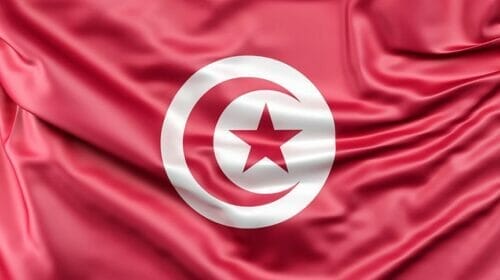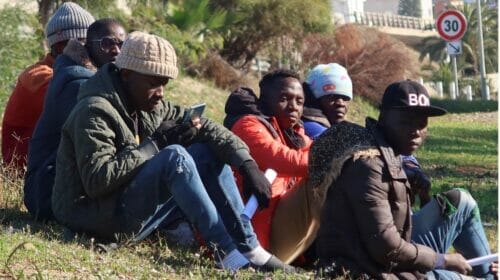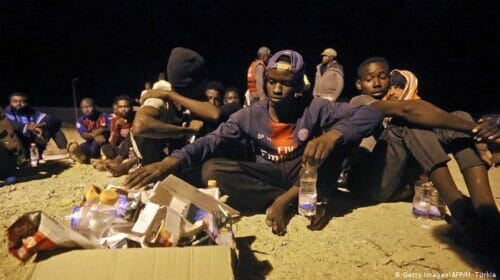Ngozi Okonjo-Iweala Nigerian Woman Could Break America’s Control of the World Bank
Education and personal life
Okonjo-Iweala is an Igbo from Ogwashi-Uku, Delta State where her father Professor Chukuka Okonjo is the Obi, or King, from the Umu Obi Obahai Royal Family of Ogwashi-Ukwu.
Dr. Ngozi Okonjo-Iweala was educated at Harvard University, graduating magna cum laude with an A.B. in 1977, and earned her Ph.D. in regional economic development from the Massachusetts Institute of Technology (MIT) in 1981. She is married to Ikemba Iweala from Umuahia, Abia State – and they have four children. The eldest, Onyinye Iweala received her Ph.D. in Experimental Pathology from Harvard University in 2008 and graduated Harvard Medical School in 2010. Her son, Uzodinma Iweala, is the author of the critically acclaimed novel Beasts of No Nation(2005).
Career
Prior to her ministerial career in Nigeria, Okonjo-Iweala was vice-president and corporate secretary of the World Bank Group. She left it in 2003 after she was appointed to President Obasanjo’s cabinet as Finance Minister on 15 July 2003.
In October 2005, she led the Nigerian team that struck a deal with the Paris Club, a group of bilateral creditors, to pay a portion of Nigeria’s external debt (US $12 billion) in return for an $18 billion debt write-off. Prior to the partial debt payment and write-off, Nigeria spent roughly US $1 billion every year on debt servicing, without making a dent in the principal owed.
Okonjo-Iweala also introduced the practice of publishing each state’s monthly financial allocation from the federal government in the newspapers. She was instrumental in helping Nigeria obtain its first ever sovereign credit rating (of BB minus) from Fitch and Standard & Poor’s. Nigeria is considered to have defaulted on its sovereign debt in 1983 (debt rescheduling is considered a type of default by rating agencies).
Some controversy surrounded Okonjo-Iweala’s appointment as Finance Minister, and that of Foreign Affairs minister, Olu Adeniji, United Nations over the payment of their salary in dollars. Okonjo Iweala and Olu Adeniji were paid US$240,000, compared with their own $6,000 base salary. The controversy was spearheaded by reform-minded media reports, although Okonjo-Iweala felt that her critics were unjustified because of the temporary nature of the payment, which came out of the donor supported Diaspora Fund negotiated by the Nigerian government. On Friday, 20 July 2007, the Court of Appeal ruled that the salary payment was not done within the ambit of Nigeria’s laws, and directed her and Adeniji to pay back the excess to the account of the state.
Both Okonjo-Iweala and the Federal Government of Nigeria have appealed the case to the Supreme Court, and judgement is pending. The appeal is on the basis that the appeals court made its judgement due to erroneous information provided to it that the Nigerian government was making the salary payments, when in fact it was not.
She resigned as Nigeria’s Foreign Minister on August 3, 2006 following her sudden removal as head of Nigeria’s Economic Team by former President Olusegun Obasanjo. She left that administration at the end of August 2006.
On October 4, 2007, World Bank President Robert Zoellick appointed her to the post of Managing Director, effective December 1, 2007.
In 2011, Okonjo-Iweala was reappointed as the Coordinating Minister for the Economy, and Minister of Finance by President Goodluck Jonathan. She took a lot of heat, more-so than any other government official for the unpopular fuel subsidy removal policy by the Nigerian government which led to Occupy Nigeria protests in January 2012.
During her confirmation as a Minister, she stressed the need to reduce the country’s recurrent expenditure which is presently 74% of the National Budget and embark on capital projects which could improve the 14% unemployment rate in the country. In her role as the Coordinating Minister For the Economy and Minister of Finance, she has extensive influence/exercise to shape the direction of the Jonathan economic team and the transformation agenda.
Non-profit work
In 2007, Okonjo-Iweala’s NGO, NOI Global Consulting, partnered with the Gallup Organization to introduce an opinion poll, the NOI poll, into the Nigerian polity. She is a fellow at the Brookings Institution. Okonjo-Iweala also serves on the Advisory Board of Global Financial Integrity and on the Board of Directors of the World Resources Institute.
It would be the first time in history the World Bank was run by a non-American but Nigeria’s Finance Minister Ngozi Okonjo-Iweala stands a real shot at claiming the title. This week, two events dovetailed to boost the chances of the charismatic West African economist.
First, the discovery of controversial remarks written by Jim Yong Kim, President Obama’s pick, who, in the 2000 book Dying for Growth, praised Cuba for “prioritizing social equity.” Kim also leaned on quotes from anti-capitalist Noam Chomsky and wrote that “the quest for growth in GDP and corporate profits has in fact worsened the lives of millions of men and women.” Second, the unprecedented push Okonjo-Iweala is receiving in elite publications as her record is compared with Kim’s.



